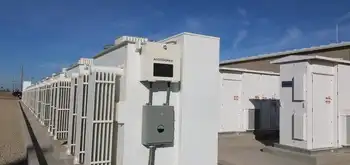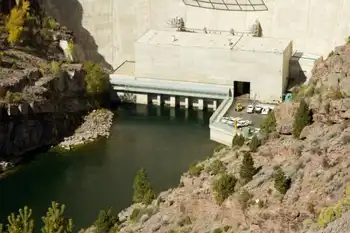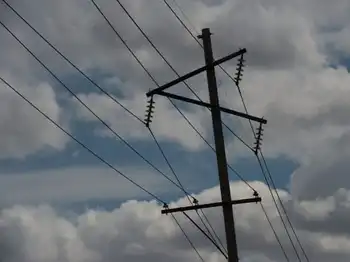Europe mulls nuclear-free future
EUROPEAN UNION - Europe is considering "stress testing" its nuclear power stations to check they can cope with crises, while its energy chief even raised the prospect of a nuclear-free future.
The developments mark a dramatic turnaround for a continent that had been considering a partial nuclear revival until just recently, when Japan's nuclear accident highlighted how quickly events can run out of control — and not only after an earthquake.
"We must also raise the question — if we in Europe, in the foreseeable future, can secure our energy needs without nuclear energy," EU energy commissioner Guenther Oettinger told Germany's ARD television.
The nuclear revival was prompted by Europe's rush to low-carbon energy to guard against climate change, but public mistrust runs high following the 1986 Chernobyl accident.
Nowhere is the debate more volatile than in Germany, where the government went as far as announcing the suspension of operations at all seven of its pre-1980 nuclear plants.
And Austria, one of the Europe Union's biggest opponents of nuclear power, received some support to its call for "stress tests" to reassure citizens worried by the crisis in Japan. It was not immediately clear, however, what those tests on power stations would involve.
Supporters of nuclear power warned against knee-jerk reactions, pointing out that Europe is much less geologically active than Japan.
But critics countered that other threats, such as terrorism, could cut a reactor's power supply — with similar consequences.
EU energy commissioner Guenther Oettinger convened a meeting of ministers, experts and nuclear operators in Brussels, at which he tabled the possibility of stress tests.
"This is an idea that needs to be considered," Oettinger's spokeswoman, Marlene Holzner, told reporters. "It will also be one of the topics this afternoon that they will talk about — stress tests for nuclear power plants in Europe."
Oettinger said the issue should be dealt with at a pan-European level.
"We must coordinate what is important for us at a European level," he said. "If we in Germany are examining nuclear plants from the '80s and '90s, we must also raise the question of whether the security check should be done for all atomic plants in Europe," he added.
Many Europeans are worried about the safety of Soviet-designed reactors in eastern Europe, such as Bulgaria's Kozloduy plant.
Meanwhile, France, which relies on nuclear for 80 percent of its power needs, backed its "safe" reactors.
Oettinger's spokeswoman Holzner said Tuesday's meeting of experts was mainly to collate safety information.
"What really has made this Japanese crisis so heavy and so out of control was the fact that the power supply was completely knocked out. So one of the questions he will ask is — what kind of emergency power supply systems are in place?"
"What happens if there were a natural disaster? Do you have in place a second back-up system?"
Earthquake risk cannot be ruled out in Europe, especially close to the Skopje-Razgrad fault line in Bulgaria, which is considering building a nuclear plant at Belene.
And Italy, which is planning to start its own nuclear program, is also quake prone.
"The European Commission should be more alert on nuclear safety," said Greenpeace nuclear campaigner Jan Haverkamp.
"We still see in the case of Belene that they are relying on bad data and that the Commission accepted a statement saying that there was no seismic risk in northern Bulgaria."
"Fourteen kilometers from the site where Belene is planned, 120 people were killed in 1977 in an earthquake."
The chairman of Bulgaria's nuclear regulator, Sergey Tzotchev, conceded there were issues that needed consideration.
"It's not as seismic as Japan, but there are some problems in this direction," he told reporters in Brussels.
Related News

Utilities see benefits in energy storage, even without mandates
WASHINGTON - The rankings do not tally how much energy storage a utility built or owns, but how much was connected to their system. So while IPL built and owns the storage facility in its territory, Duke does not own the 16 MW of storage that connected to its system in 2016. Similarly, while California’s utilities are permitted to own some energy storage assets, they do not necessarily own all the storage facilities connected to their systems.
Measured by energy (MWh), IPL ranked fourth with 20 MWh, and Duke Energy Ohio ranked eighth with 6.1 MWh.
Ranked by energy storage…




